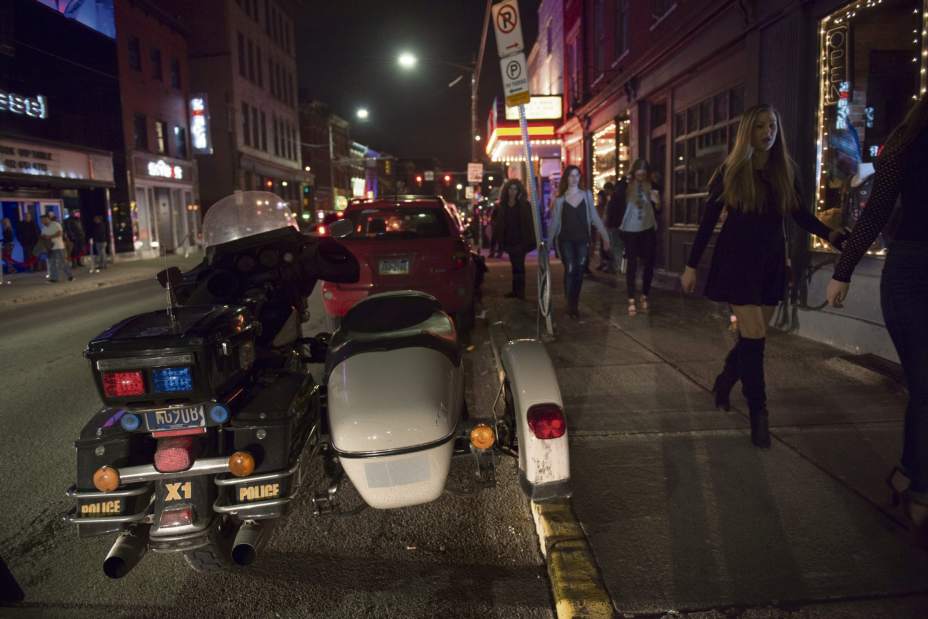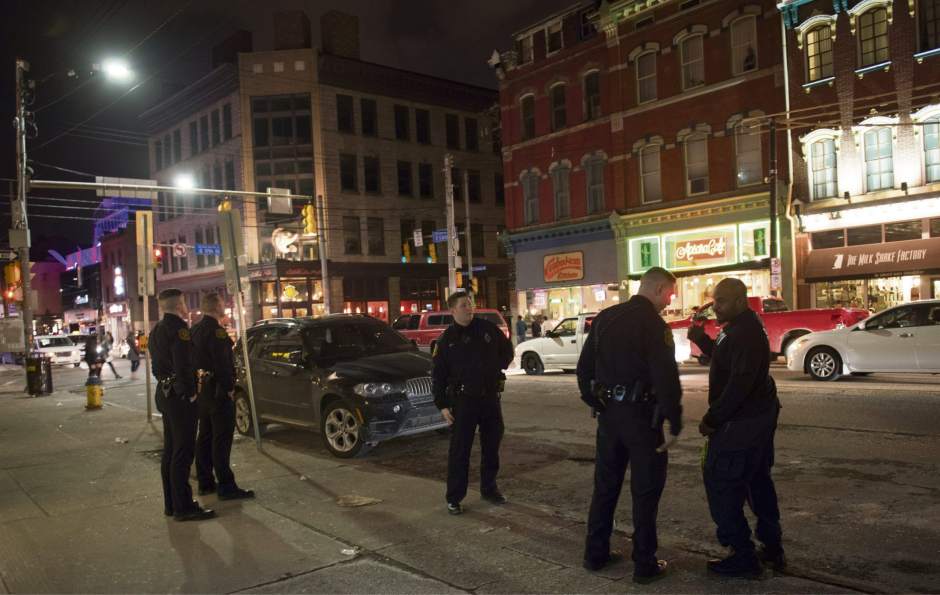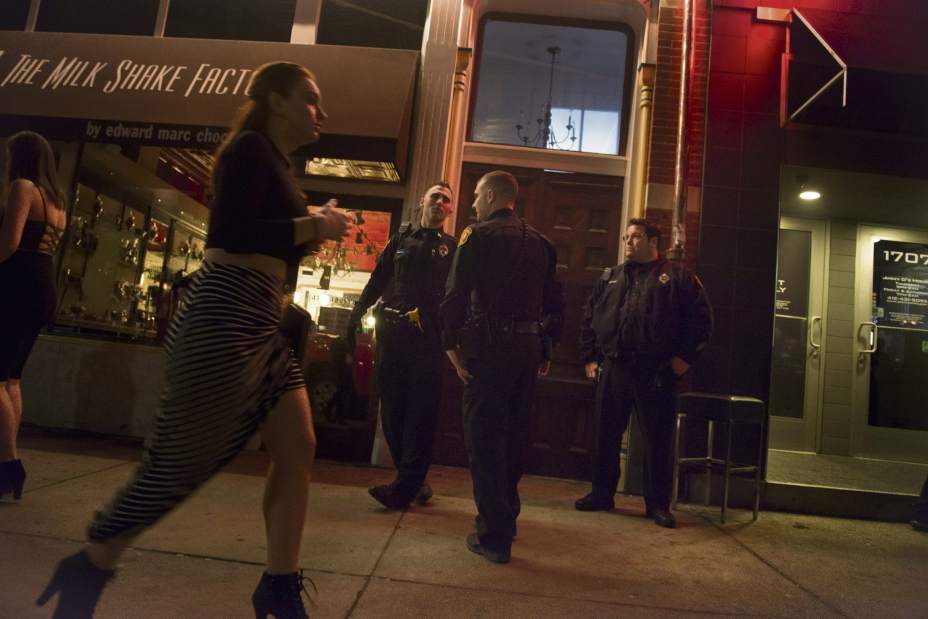South Side merchants: 'Sociable City' plan backfiring
After years of planning at a cost exceeding $400,000, Pittsburgh officials say they are implementing a program to ease nighttime congestion and bad behavior in the South Side business district.
But longtime South Side merchants, who were supposed to benefit from the Sociable City concept championed by Councilman Bruce Kraus, say it has backfired at their expense.
They said parking restrictions have driven away customers, and they fear Kraus-sponsored legislation for further restrictions will add to accumulating storefront vacancies on Carson Street. They note that South Side crime statistics have increased despite additional police scrutiny since 2012 when the city hired Santa Cruz, Calif.-based Responsible Hospitality Institute as a consultant to develop plans for reducing crime.
Most of all, they complain that the city has failed to communicate details of plan implementation and has turned a deaf ear to their worries.
“(Kraus) has created a process for input to be given, but it's being ignored,” said Michael Murphy, owner of the Carson Street Deli and Craft Beer Bar. “While the business group has had an opportunity to be heard very selectively, it's not being heard.”
Kraus, who lives in the South Side and represents the neighborhood, said he's met with residents and businesses individually since 2014 and convened five public meetings and a workshop to gather input and give residents and business owners status reports about the Sociable City plan.
He said the South Side has suffered for years from drunken revelry, including vandalism, assaults, public urination and worse, and the neighborhood had to change.
“Anyone who wanted to be a part of constructive change has participated,” Kraus said. “They're correct if they're saying I won't listen to let's do business as usual. Status quo gave us what I own. There clearly needs to be change, and I put together some sound policy to effectuate that change.”
The city spent $300,000 for the Responsible Hospitality Plan at Kraus' urging and budgeted a total $137,000 in 2015 and 2016 on salaries for a nighttime economy manager.
In addition, the city is spending thousands each weekend on overtime for police officers to patrol the South Side. The police bureau could not provide a total cost of overtime for so-called saturation patrols.
While vandalism, drunken driving and serious crime, including homicide, burglary, rape and aggravated assault, have decreased by double-digit percentages, overall crime has increased by 37 percent since 2012, according to annual statistics published by the police bureau. Meanwhile, public drunkenness arrests are up by nearly 800 percent along with disorderly conduct arrests, which increased by 140 percent.
Public Safety spokeswoman Sonya Toler attributed the increase to a heightened police presence. She said it contributed to a decrease in violent crime.
“I can tell you that when you have increased enforcement, you're going to have increased numbers,” Toler said. “There's an increased presence of uniformed police officers, and that speaks volumes to would-be criminals. That decreases the chances of someone being shot or stabbed.”
Business owners applaud increased police patrols, but said they have seen little else to benefit business.
John DeMauro, president of the South Side Bar and Restaurant Association, said the city has implemented parts of the plan, including police patrols and initiatives to ease traffic congestion.
“It's only hitting on some of the points, and businesses would argue that it's not dealing with the business interests adequately,” said DeMauro, who lives in the South Side and owns Jimmy D's and the Urban Tap, both on Carson Street. “It's like a recipe for something with only a couple ingredients.”
Jonathan Growall, president of the South Side Chamber of Commerce, said Kraus has concentrated on lobbying for more police protection rather than addressing requests for a paid staff, such as a main street manager, to implement the plan fully.
He said revenue from increased parking enforcement should be used to hire staff.
“What we don't have is paid people in the street to get it done,” he said. “That's what I'm asking from Bruce right now. Everybody is just completely confused about what he's trying to do.”
Kraus said he's always responded to community requests and asked for documentation to prove he has ignored constituents.
“Share with me phone calls, request for meetings, emails that went unanswered,” he said. “I will entertain that conversation.”
Allison Harnden, Pittsburgh's nighttime economy manager, said the neighborhood will begin to see changes this year. Last week, she said, city police began implementation of a “transportation zone” at 17th Street and Carson where visitors can grab a cab and access valet parking and park-and-ride services. A shuttle to a large city parking lot on Second Avenue, Uptown, is coming along with increased parking enforcement through midnight. The extra revenue from parking and enforcement will pay for the extra police, she said.
Business owners object to increased enforcement and the Second Avenue shuttle, saying they will further restrict access to South Side.
Harnden said the city is open to change as plans progress.
“I hear through the grapevine a few naysayers who say ... things aren't working, but I don't understand how they can say that,” she said. “(The plan is) being implemented right now.”
Tim McNulty, spokesman for Mayor Bill Peduto, said the mayor's office believes spending $300,000 is a small price to pay.
“Going forward, we think it's going to be a great benefit to businesses, residents and communities all over the city.”
Bob Bauder is a Tribune-Review staff writer. Reach him at 412-765-2312 or bbauder@tribweb.com.



